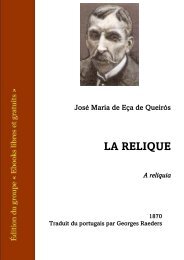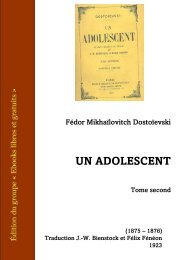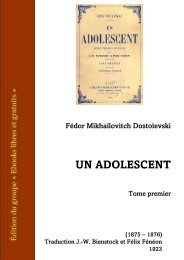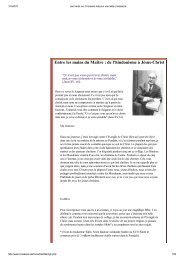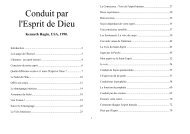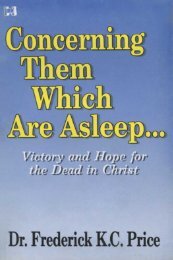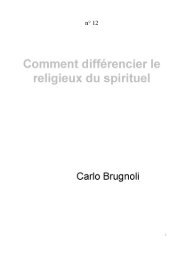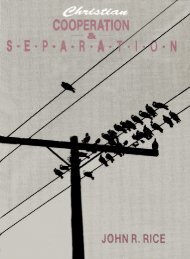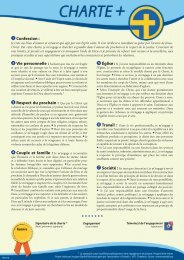341332
Create successful ePaper yourself
Turn your PDF publications into a flip-book with our unique Google optimized e-Paper software.
10 FATHERS, PASTORS AND KINGS<br />
The opening chapter of this book places France within its contemporary<br />
context by analysing these wider European currents. Reflection and writing on<br />
episcopacy were certainly not phenomena peculiar to this era, but when the<br />
Council of Trent placed bishops at the heart of its reform programme it concentrated<br />
renewed attention on the nature of the office and its role within the<br />
church. In the wake of the Council, the fruits of that concentration were often<br />
published in the form of handbooks for bishops which attempted to supplement<br />
Trent’s bald directives with advice on episcopal administration, spirituality and<br />
pastoral care. When this development is viewed in conjunction with the<br />
reforming actions of bishops like Borromeo and Valier and with Trent’s<br />
decrees, it is clear that within the wider church, the late sixteenth century<br />
proved a very productive era for the elaboration of ideas on episcopacy. Despite<br />
the instability of the civil wars, the French church was not untouched by this<br />
discussion, and several prelates like Cardinal Joyeuse, the archbishop of Rouen,<br />
absorbed contemporary suggestions and used them to govern their dioceses<br />
before 1600. Like their contemporaries outside France, however, they found<br />
themselves tied to a particularly legalistic and long-standing notion of episcopacy<br />
which, despite the efforts of both theologians and bishops, overshadowed<br />
the pastoral and spiritual aspects of the office. This had also traditionally been<br />
a problem for reform-minded French theologians and preachers since the late<br />
medieval era, and it continued to exercise the minds of bishops and reformers<br />
into the seventeenth century.<br />
Among the best-known and most significant of these reformers were those<br />
commonly labelled by historians as forming ‘the French school’ of spirituality<br />
and priesthood. French historians have generally justified their claim that France<br />
underwent a religious renaissance directly after the religious wars by pointing to<br />
this particularly gallic brand of mystical spirituality, which emerged in the early<br />
decades of the seventeenth century under the aegis of individuals like Pierre de<br />
Bérulle and Charles de Condren. Whether one accepts this contention or not,<br />
the close links between French clerical reformers and this spiritual revival are<br />
well documented. 29 The school’s sacerdotal theory was founded on principles of<br />
ecclesiastical hierarchy which built on the Tridentine decrees in emphasising the<br />
unique character of priesthood, the eminence of its members and their intimate<br />
relationship with Jesus Christ, the founder of their order. Through their<br />
writings and the congregations that they founded, the reformers’ ideas became<br />
the dominant sacerdotal theology within the French church, and indeed went on<br />
to influence clergy outside France for several centuries.<br />
These efforts to reform the priesthood have been amply traced: several<br />
historians have mined the abundant treatises produced on the subject, 30 while<br />
detailed (if rather hagiographic) histories of the congregations and their<br />
founders have also been produced since the seventeenth century. 31 Yet, almost






